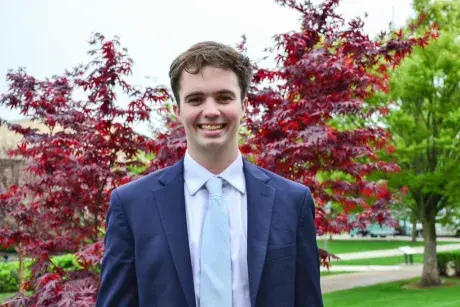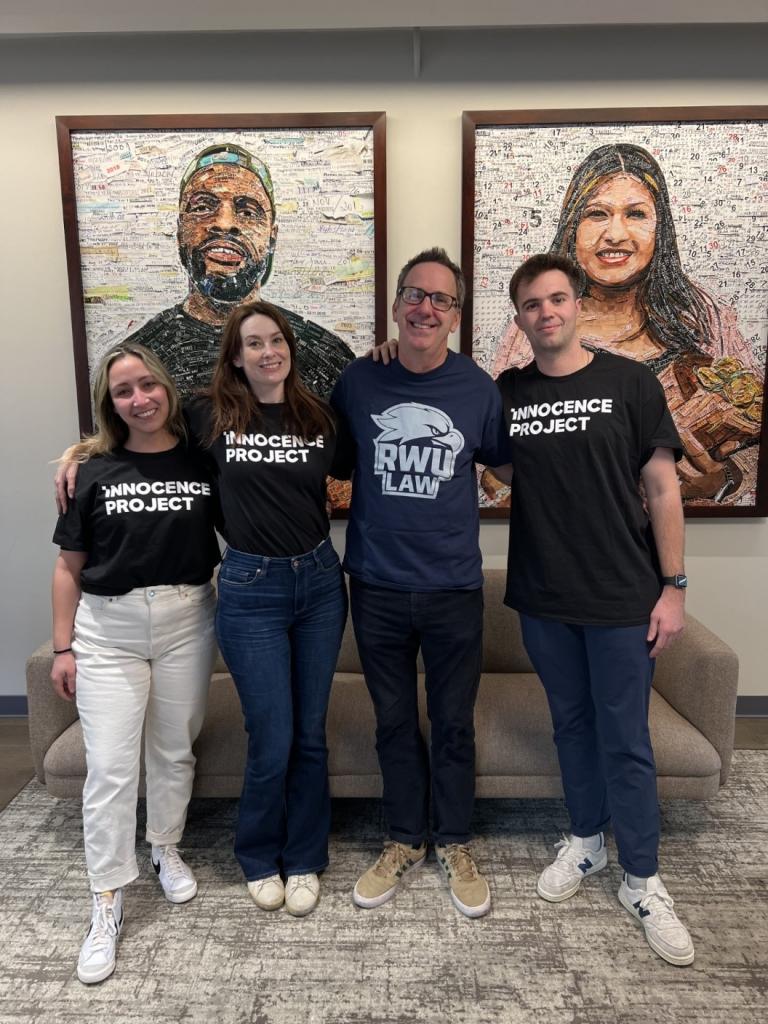The Surprising Impact of Pro Bono Opportunities

Nate Reid L’26 is not an emotional person.
And yet, Reid found himself deeply impacted by the real-life stories of the justice system and wrongfully-incarcerated people during a short-term volunteer project at the Innocence Project’s New York headquarters.
“I keep joking, I think in the past five years, I’ve cried three times, and it was when my college soccer career ended, when the Eagles lost in the Super Bowl, and when the Phillies lost in the World Series,” Reid says. “And I cried probably 15 times in that week there, which is really kind of something.”
Reid was participating in a weeklong assignment through Roger Williams University School of Law’s Alternative Spring Break (ASB) program. ASB pairs law students with pro bono legal service projects across the United States, with subject matter including immigration, criminal law, environmental law, and more.
When Reid applied for ASB, the Innocence Project “called my name.” ASB helped him complete the 50 pro bono hours RWU Law requires for graduation, but his interest went well beyond checking a box.
Eye-opening perspective
During the week with the Innocence Project, Reid’s main assignment was tracking down the case files and evidence records for a matter the organization was evaluating, that had been tried decades ago. After numerous phone calls, he located the documents through a court clerk in Louisiana. There was just one wrinkle: The bill for the court to copy and ship the documents was thousands of dollars. According to Reid, the organization chose to fly someone to Louisiana to copy the records instead. The experience drove home the difficulty people often encounter in accessing the judicial system.
But the biggest impact of the week was learning about wrongfully convicted individuals. For example, one of the people Reid met during the week pled guilty to a crime he didn’t commit on the advice of his public defender. He was eventually freed on the basis of DNA evidence that had been lost and was later relocated.

“They showed us videos of people walking out of prison and hugging their family, and that brought tears to my eyes,” Reid says.
Reid also was struck by the scope of the challenges to wrongfully incarcerated people. “The Innocence Project receives thousands of requests every single year for representation, … and even if 10% of these are true, … there’s potentially tens of thousands, hundreds of thousands, of people wrongfully locked up in our prisons, which is really sad, and shows the need that we have for attorneys to give people a chance.”
Exploring new experiences
Reid is interested in a career in civil litigation after law school. He also would like to continue doing pro bono work. This summer, he will be working at Motley Rice on mass tort litigation.
Reid encourages students with similar career interests to make the most of public interest opportunities like ASB even if they don’t plan to practice public interest law.
“Don’t close off one road before you really have a chance to experience everything. That’s one thing I’m really focusing on at law school, is trying to get a feel for everything, every kind of law, corporate, criminal, injury,” Reid says. “My biggest piece of advice would be to give everything a chance. [Before] coming to law school, I would have told you I would never a day in my life work public sector, and that’s something that is not at all the case for me anymore.”
